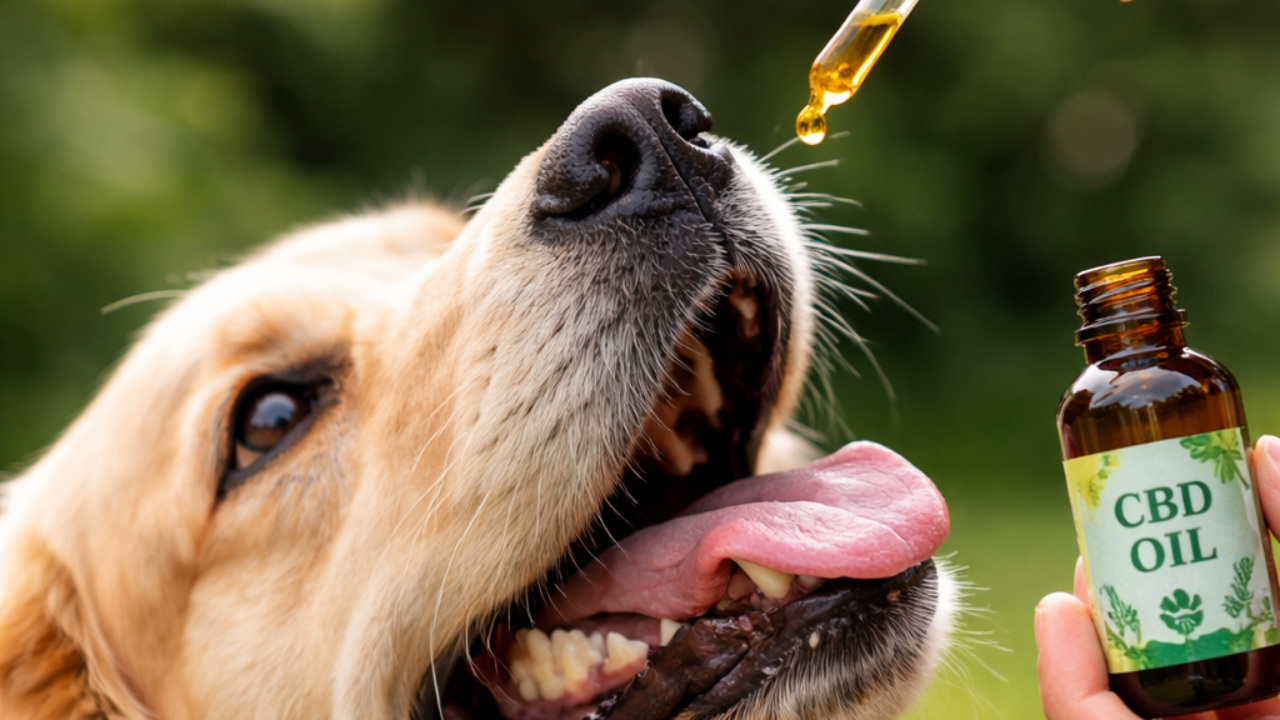How Ginger Can Help Dogs with Cancer
May 20, 2025
Cancer affects approximately 1 in 4 dogs during their lifetime, making it one of the leading causes of death in our canine companions. As pet owners seek complementary approaches to support conventional cancer treatments, ginger has emerged as a promising natural remedy with multiple potential benefits. This comprehensive guide explores how ginger may help dogs battling cancer, while emphasizing the importance of veterinary oversight in any treatment plan.
Understanding Ginger as a Therapeutic Agent
Ginger (Zingiber officinale) has been used medicinally for thousands of years across various cultures. This rhizome contains over 400 bioactive compounds, with the most studied being gingerols, shogaols, and zingerone. These compounds are responsible for ginger's distinctive flavor and its impressive array of therapeutic properties.
5 Key Benefits of Ginger for Dogs with Cancer
1. Powerful Anti-Inflammatory Properties
Ginger is a powerful anti-inflammatory agent that helps relieve pain and fight infection. Chronic inflammation is closely linked to cancer development and progression. The gingerols in ginger work by inhibiting inflammatory pathways, particularly the cyclooxygenase (COX) and lipoxygenase (LOX) pathways, which can help reduce inflammation-related pain and discomfort in dogs with cancer.
2. Anti-Metastatic Effects
Ginger may help stop the spread of cancer cells in the body (metastasis). Research has shown that ginger compounds can interfere with cellular adhesion molecules and matrix metalloproteinases, which cancer cells use to invade tissues and spread throughout the body. This makes ginger particularly valuable as part of a comprehensive cancer management strategy.
3. Antioxidant Protection
Ginger contains compounds known as gingerols that protect your dog from free radical damage caused by toxins in their environment, stress, poor diet, and many other factors that cause accelerated aging. These antioxidants help neutralize harmful free radicals that can damage DNA and contribute to cancer development and progression.
4. Direct Anti-Cancer Activity
Ginger contains active ingredients such as gingerol, shogaol, and zingerone which have been shown to inhibit tumor growth and metastasis in several types of cancers including mammary cancer, ovarian cancer, esophageal cancer, and colorectal cancer. These compounds can induce apoptosis (programmed cell death) in cancer cells while leaving healthy cells largely unaffected.
5. Anti-Angiogenic Effects
Ginger has been shown to have an anti-angiogenic effect on tumors, meaning it blocks the formation of new blood vessels that feed tumors. By preventing angiogenesis, ginger helps starve tumors of the nutrients and oxygen they need to grow and spread, effectively limiting their ability to expand.
Additional Health Benefits for Cancer Dogs
Digestive Support
Cancer treatments often cause digestive upset, nausea, and loss of appetite. Ginger may help improve digestion by:
- Stimulating saliva and gastric juice production
- Accelerating gastric emptying
- Reducing nausea and vomiting
- Supporting healthy gut motility
- Helping with both diarrhea and constipation issues
Immune System Enhancement
Ginger contains vitamin C and other compounds that help boost immune system function, enabling your dog's body to fight off infections and potentially recognize and eliminate cancer cells more effectively. A strong immune system is crucial for dogs undergoing cancer treatment.
Pain Management
The anti-inflammatory properties of ginger can provide natural pain relief, which is particularly beneficial for dogs experiencing cancer-related discomfort or pain from treatments.
Scientific Research and Evidence
Multiple studies have demonstrated ginger's anti-cancer properties:
- In vitro studies have shown that ginger extracts can inhibit the growth of various cancer cell lines
- Animal studies have demonstrated ginger's ability to reduce tumor size and prevent metastasis
- Clinical research in humans has shown ginger's effectiveness in reducing chemotherapy-induced nausea
- Pharmacological studies have identified the specific mechanisms by which ginger compounds fight cancer
While most research has been conducted on human cancer cells or laboratory animals, the findings provide strong support for ginger's potential benefits in canine cancer management.
Dosage Guidelines and Administration
Recommended Dosage
The general recommended dosage of ginger for dogs is 1 teaspoon per 10 pounds of body weight, administered once daily. This translates to:
- Small dogs (10-20 lbs): 1-2 teaspoons daily
- Medium dogs (21-50 lbs): 2-5 teaspoons daily
- Large dogs (51-80 lbs): 5-8 teaspoons daily
- Giant breeds (80+ lbs): 8+ teaspoons daily
Forms of Ginger
Fresh Ginger Root:
- Most potent form with highest concentration of active compounds
- Should be peeled and finely minced or grated
- Can be mixed into food or made into a tea (cooled before serving)
- Store in refrigerator for up to 3 weeks
Dried Ginger Powder:
- More concentrated than fresh (use about 1/4 the amount)
- Easier to store and measure
- Can be sprinkled directly onto food
- Ensure it's pure ginger with no additives
Ginger Supplements:
- Standardized extracts ensure consistent potency
- Choose high-quality, veterinary-approved supplements
- Follow manufacturer's dosing instructions
- May be easier for precise dosing
Administration Tips
- Start with a smaller dose and gradually increase to allow your dog's system to adjust
- Mix ginger into wet food to mask the strong flavor
- Consider making ginger "treats" by mixing with dog-safe ingredients
- Administer with food to prevent stomach upset
Safety Considerations and Precautions
Potential Side Effects
While ginger is generally safe, some dogs may experience:
- Gastrointestinal upset (especially when starting)
- Increased bleeding risk (due to blood-thinning properties)
- Hypoglycemia in diabetic dogs
- Mild sedation in some sensitive dogs
Contraindications
Avoid ginger or consult your veterinarian first if your dog:
- Is scheduled for surgery (discontinue at least 2 weeks prior)
- Is taking blood-thinning medications
- Has a bleeding disorder
- Has gallstones or gallbladder disease
- Is pregnant or nursing
- Has a known sensitivity to ginger
Drug Interactions
Ginger may interact with:
- Anticoagulant medications (warfarin, heparin)
- Antiplatelet drugs (aspirin, clopidogrel)
- Diabetes medications
- Blood pressure medications
- Some chemotherapy drugs
Implementation Strategy
Starting Ginger Therapy
- Consult your veterinarian before adding ginger to your dog's treatment plan
- Start slowly with 1/4 of the recommended dose
- Monitor your dog for any adverse reactions
- Gradually increase to the full dose over 7-10 days
- Maintain consistency with daily administration
Monitoring Your Dog
Watch for:
- Positive signs: Improved appetite, increased energy, better digestion
- Concerning signs: Vomiting, diarrhea, excessive lethargy, unusual bleeding
- Emergency signs: Difficulty breathing, severe vomiting, collapse
Quality and Sourcing
When purchasing ginger:
- Choose organic when possible to avoid pesticide residues
- Ensure fresh ginger is firm and aromatic
- Select reputable brands for supplements
- Check expiration dates and storage requirements
- Avoid products with artificial additives or preservatives
Integration with Conventional Treatment
Ginger should be viewed as a complementary therapy, not a replacement for conventional cancer treatment. It works best when:
- Used alongside veterinary-prescribed treatments
- Part of a holistic approach including proper nutrition
- Combined with other evidence-based supportive therapies
- Monitored by your veterinary team
Communication with Your Veterinary Team
Always inform your veterinarian about:
- All supplements and natural remedies you're giving
- Any changes in your dog's condition
- Questions about interactions with prescribed medications
- Concerns about side effects or effectiveness
Nutritional Synergy
Ginger's effectiveness may be enhanced when combined with:
- Turmeric: Another powerful anti-inflammatory spice
- Omega-3 fatty acids: Support immune function and reduce inflammation
- Antioxidant-rich foods: Blueberries, sweet potatoes, leafy greens
- High-quality protein: Essential for immune system support
- Prebiotics and probiotics: Support digestive health
Storage and Preparation
Fresh Ginger Storage
- Store unpeeled ginger in the refrigerator for up to 3 weeks
- Freeze peeled, chopped ginger in ice cube trays for longer storage
- Keep in a paper bag in the refrigerator crisper drawer
Preparation Methods
- Grating: Creates a fine texture that mixes well with food
- Mincing: Produces small pieces that are easy to swallow
- Juicing: Concentrated form that can be mixed with water or food
- Tea preparation: Steep fresh ginger in hot water, cool completely before serving
Signs of Improvement to Watch For
Dogs receiving ginger may show:
- Improved appetite and interest in food
- Increased energy and activity levels
- Better digestive function
- Reduced signs of nausea or discomfort
- Enhanced overall quality of life
- Improved tolerance of conventional treatments
When to Discontinue Ginger
Stop giving ginger and contact your veterinarian if:
- Your dog experiences persistent vomiting or diarrhea
- You notice unusual bleeding or bruising
- Your dog becomes lethargic or unresponsive
- There are signs of an allergic reaction
- Your veterinarian advises discontinuation
The Bigger Picture: Holistic Cancer Care
While ginger shows promise as a supportive therapy for dogs with cancer, it's most effective as part of a comprehensive approach that includes:
- Veterinary oncology care: Professional diagnosis and treatment
- Nutritional support: High-quality, cancer-fighting diet
- Exercise management: Appropriate activity for your dog's condition
- Stress reduction: Maintaining routine and emotional support
- Regular monitoring: Frequent check-ups and diagnostic tests
Current Research and Future Directions
The field of veterinary integrative oncology continues to evolve, with ongoing research into:
- Optimal dosing protocols for different cancer types
- Combination therapies with other natural compounds
- Mechanisms of action specific to canine physiology
- Long-term safety profiles in dogs with cancer
A Promising Holistic Option
Ginger represents a promising complementary therapy for dogs with cancer, offering multiple potential benefits including anti-inflammatory, anti-cancer, and digestive support properties. However, its use should always be discussed with and monitored by your veterinary team to ensure safety and optimal integration with conventional treatments.
While the scientific evidence supporting ginger's anti-cancer properties continues to grow, it's important to maintain realistic expectations and view it as one component of a comprehensive cancer management strategy. With proper veterinary guidance, appropriate dosing, and careful monitoring, ginger may help improve your dog's quality of life and potentially support their body's natural ability to fight cancer.
Remember that every dog is unique, and what works for one may not work for another. The key is working closely with your veterinary team to develop an individualized approach that best serves your dog's specific needs and circumstances.
Always consult with your veterinarian before starting any new supplement or treatment regimen for your dog, especially when dealing with cancer. This information is for educational purposes and should not replace professional veterinary advice.
References
Anti-Cancer Effect of Gingerol in Cancer Prevention and Treatment
Become a Dog Cancer Coach.
Transform your passion for dogs into a meaningful, heart-led career with our Holistic Dog Cancer Coach Certification—an in-depth, flexible online program designed for compassionate caregivers ready to make a difference.
Stay connected with news and updates!
Join our mailing list to receive the latest news and updates from our team.
Don't worry, your information will not be shared.
We hate SPAM. We will never sell your information, for any reason.





